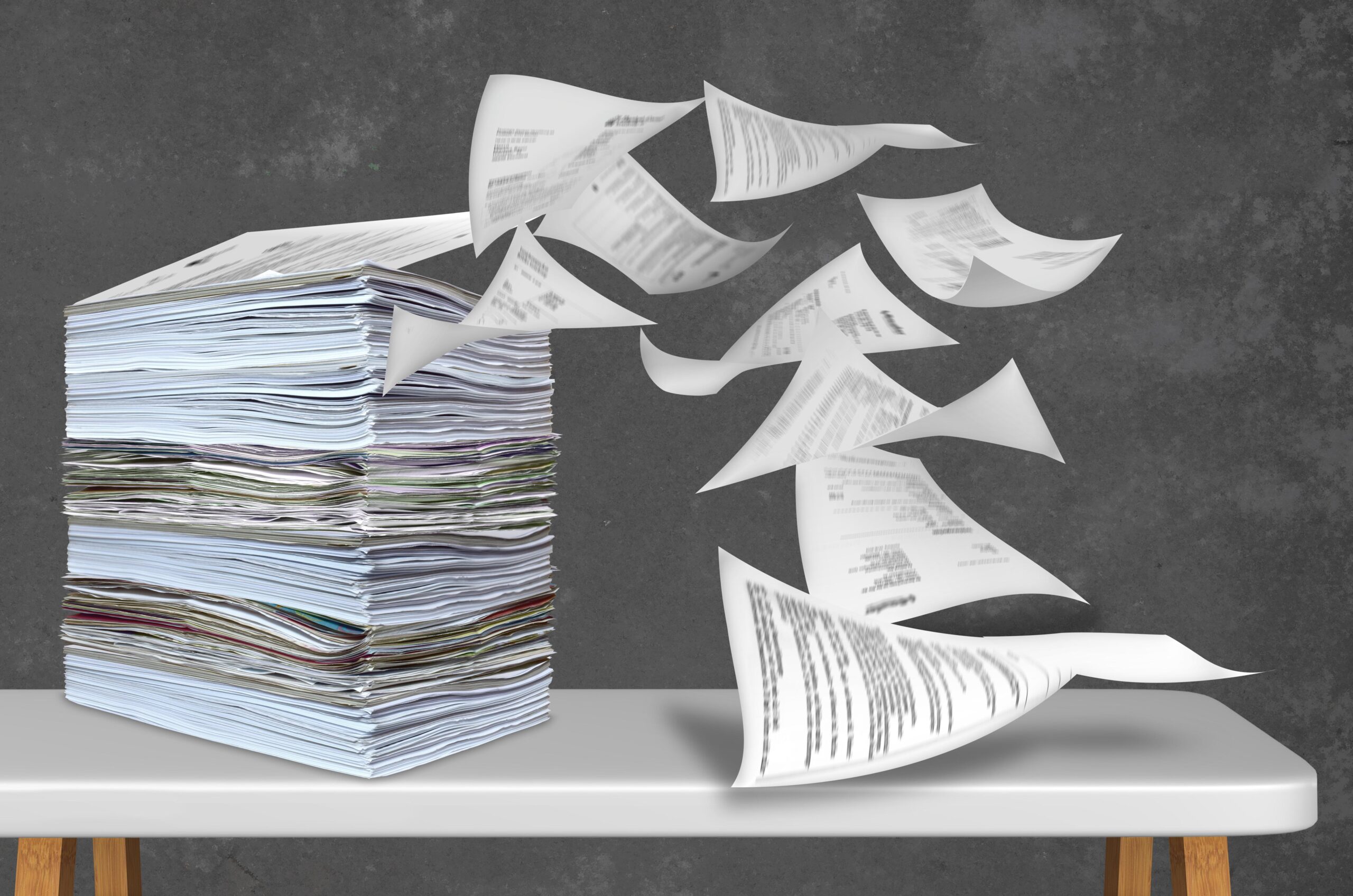Which estate administration documents should be kept after completion?
Although not an exhaustive list, it is recommended to retain the following papers:
- Grant of Probate or Letters of Administration and a copy of the Will
- The original birth, marriage and death certificates for the deceased and their spouse, or a copy of any Court orders such as a divorce degree
- Letters from HM Revenue with tax clearances
- A copy of the Estate Accounts
Ideally, all papers should be held in an electronic form so that you can retrieve them quickly if needed in the future.
How long should I keep the papers for?
We recommend keeping the above papers indefinitely, but other papers such as tax records, valuations and statements should be kept for at least 3 years just in case the Tax Office needs to re-open an enquiry.
If there is a future change in the law, at least some of the key documents are available to hand. When the availability of the former spouse’s unused nil rate band was introduced in 2007, problems for executors were created as the papers for pre-deceased spouses would not necessarily have been kept if the death had been many years prior to the second death.
Although it is not possible to anticipate changes, keeping some important documents may make things easier to deal with in the future.
We retain estate papers for a minimum period of 12 years and the Grant of Probate indefinitely.
How should I dispose of estate administration documents?
We would recommend keeping the important papers referred to above in a safe place, but once you are ready to get rid of the other paperwork, it would be advisable to have these shredded securely. Some of the papers will have financial information on them or may be more personal to the family, therefore shredding these documents will provide greater peace of mind and avoid getting in the hands of unwanted people.
If there is a lot of paperwork and you don’t have a shredder to destroy the papers, you could arrange for a company which helps to shred papers securely to remove and dispose of the papers. This is usually charged as a cost to the estate.
What about papers with some historical interest?
If there are any old documents which may have some interest to a local museum or history society, provided they have not been specifically left in a Will, you may wish to donate these.
For more information on administering an estate, please contact Helen Gowin on 01260 282351 or email helen.gowin@sasdaniels.co.uk.
Which estate administration documents should be kept after completion?
Although not an exhaustive list, it is recommended to retain the following papers:
- Grant of Probate or Letters of Administration and a copy of the Will
- The original birth, marriage and death certificates for the deceased and their spouse, or a copy of any Court orders such as a divorce degree
- Letters from HM Revenue with tax clearances
- A copy of the Estate Accounts
Ideally, all papers should be held in an electronic form so that you can retrieve them quickly if needed in the future.
How long should I keep the papers for?
We recommend keeping the above papers indefinitely, but other papers such as tax records, valuations and statements should be kept for at least 3 years just in case the Tax Office needs to re-open an enquiry.
If there is a future change in the law, at least some of the key documents are available to hand. When the availability of the former spouse’s unused nil rate band was introduced in 2007, problems for executors were created as the papers for pre-deceased spouses would not necessarily have been kept if the death had been many years prior to the second death.
Although it is not possible to anticipate changes, keeping some important documents may make things easier to deal with in the future.
We retain estate papers for a minimum period of 12 years and the Grant of Probate indefinitely.
How should I dispose of estate administration documents?
We would recommend keeping the important papers referred to above in a safe place, but once you are ready to get rid of the other paperwork, it would be advisable to have these shredded securely. Some of the papers will have financial information on them or may be more personal to the family, therefore shredding these documents will provide greater peace of mind and avoid getting in the hands of unwanted people.
If there is a lot of paperwork and you don’t have a shredder to destroy the papers, you could arrange for a company which helps to shred papers securely to remove and dispose of the papers. This is usually charged as a cost to the estate.
What about papers with some historical interest?
If there are any old documents which may have some interest to a local museum or history society, provided they have not been specifically left in a Will, you may wish to donate these.
For more information on administering an estate, please contact Helen Gowin on 01260 282351 or email helen.gowin@sasdaniels.co.uk.




